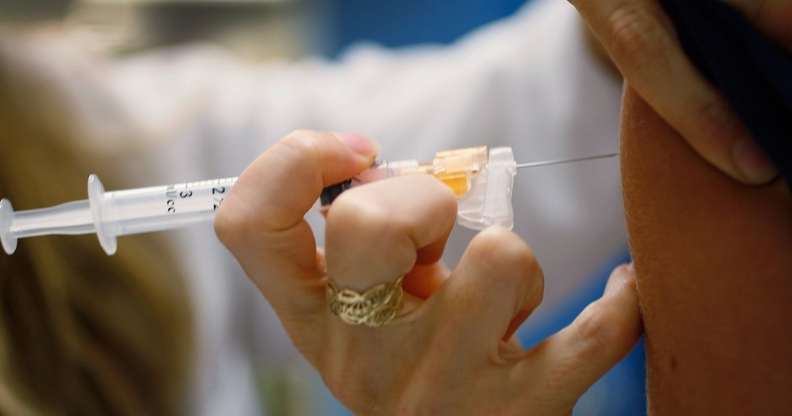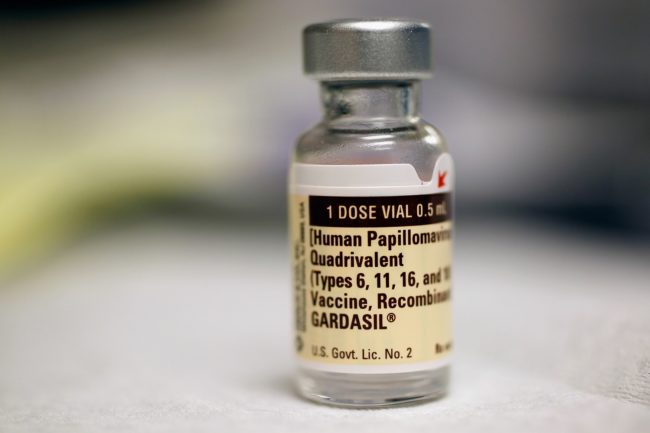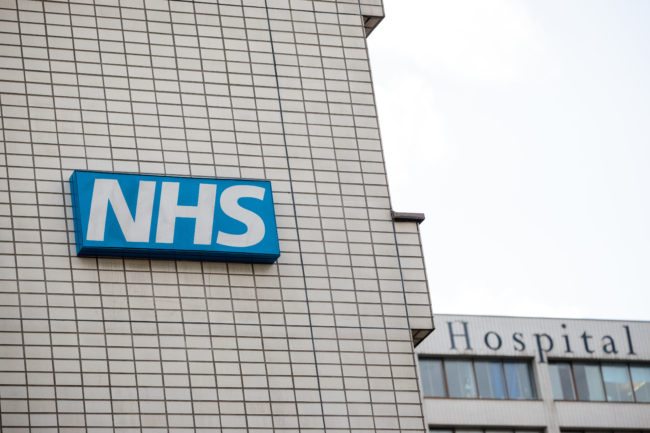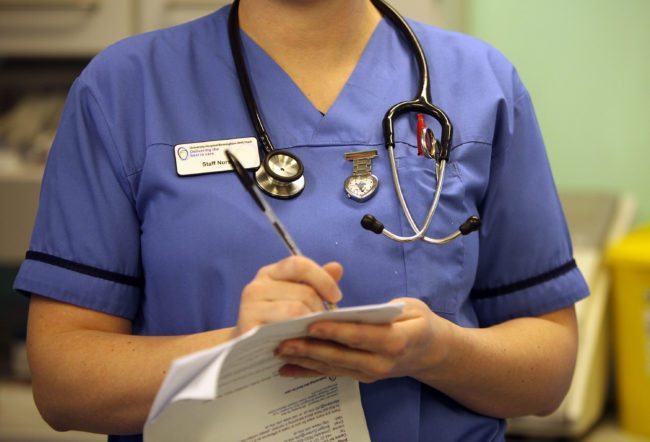HPV jabs to be offered to teen boys on the NHS

(Getty)
Health Secretary Jeremy Hunt is reportedly giving the green light to a plan to inoculate boys against the HPV virus.
Boys are not currently inoculated against the HPV virus, which can develop into throat, mouth and anus cancer in men.
Men who have sex with men are more prone to the HPV virus.
However, girls were first vaccinated against the virus in 2008, and the programme has continued ever since.

A bottle of the Human Papillomavirus vaccination is seen at the University of Miami Miller School of Medicine (Joe Raedle/Getty)
The Mail on Sunday reported that Health Secretary Jeremy Hunt will give the go-ahead for boys to be inoculated against the cancer-causing human papillomavirus (HPV)
“As someone who still lives with the aftermath of an HPV cancer, I can only express relief,” former throat cancer patient Jamie Rae told the publication.
It costs around £300 to get boys vaccinated privately, and if the virus develops, it is said to kill roughly 650 men a year.

The HPV virus (Getty)
“The decision to vaccinate boys is long overdue, but still very welcome indeed. It will ensure that boys have the same level of protection against a range of cancers and genital warts that girls have had since 2008,” the British Dental Association (BDA), a member of the HPV Action coalition, told the i.
“We now urge the Government and the vaccine manufacturers to move quickly to ensure that there is no further delay. With each year that passes without vaccination for all, 400,000 more boys are left at risk of the diseases caused by HPV.”

National Health Service (Jack Taylor/Getty)
Another 20 countries provide the vaccine for both boys and girls.
According to the Centers for Disease Control and Protection, men with weak immune systems (including those with HIV) who get infected with HPV are more likely to develop HPV-related health problems.

National Health Service (Christopher Furlong/Getty)
Men who receive anal sex are more likely to get anal HPV and develop anal cancer.
According to a recent study, the number of 16 to 21 year old women carrying potentially life-threatening HPV infections has plummeted by 86 per cent since a major vaccination programme for teenage girls began in 2008, reported the i.

